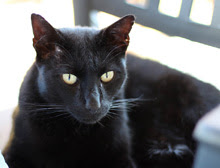Once I learn a new French word or phrase, I start hearing it all the time, often two or three times in the few hours after I learned it. This makes me wonder what I thought was being said all the other times I heard the word but let it pass right by. It also makes me realize, as if I didn't already, how much of this language I don't know and how much there is to learn. I know that I can spend the rest of my life here and it won't be enough.
But I'm on my way. So with no further ado, the inaugural entry for Word Of The Week (look for a new word every Wednesday or so):
Butinage
A noun (masculine), from the verb butiner which means to visit flowers in order to extract pollen. This is, of course, what bees do in the garden.
I recently mixed up some insecticide for the vegetable garden (our mustard greens were being attacked and destroyed) and the cautions on the box included this: Eviter de traiter durant les périodes de butinage intense des abeilles.
I thought I understood the warning from the context, but I needed to look up butinage to be certain. I had guessed correctly. The caution means that you should avoid using the insecticide during periods of intense bee activity.







Hmm, I detect a theme (inspired by Amy H's recent post perhaps?). My personal best "mishearing" to date is "grand air" for "courant d'air," meaning a draft of air, as through a house. Even the mishearing made a kind of sense, which may have been why I didn't straighten myself out for (really) 20 years.
ReplyDeleteChris P
Et bien, tu m'en... bouches un coin/you're amazing me (or, should I say "you amaze me, please, Professor Walt ?) lol ! Je ne connaissais pas "butinage" et ai appris ce terme grâce à ton blog ! Quel mec :-) ! Bises. Marie
ReplyDeleteAh, but where did it come from? Why is it not "abeillisage"?
ReplyDelete"Le but" is to pollenate the flowers?